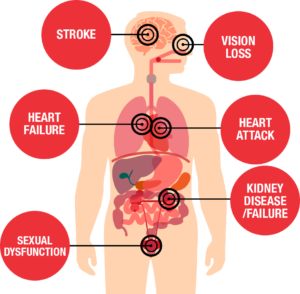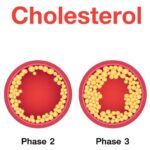Are you a ‘walking dead’?
In the hit TV series The Walking Dead, zombies roam the earth—soulless, decaying, and unaware that they’re already dead. It’s fiction, of course, but in the real world, many of us are not too far off. We move through life on autopilot, ignoring the subtle signs and warnings our bodies give us, pushing through fatigue, aches, stress, and symptoms that whisper, “Something’s not right.”
Contents
Are you a ‘walking dead’?We’re alive—but are we really well?Or are we, in a sense, the walking dead?The Silent Threats in Our BodiesIt’s not dramatic. It’s not flashy. But prevention is powerful.What Is a Health Check and Why Should You Care?Who Needs a Health Check?Everyone.You wouldn’t drive your car for years without servicing it. So why treat your body that way?The Financial Benefits of Health ChecksWhen it comes to your finances, health checks are not a cost—they’re an investment. Here’s how:1. Early Detection Saves Money2. Avoid Lost Income3. Reduced Long-Term Healthcare Costs4. Lower Insurance Premiums and ClaimsTake the First StepFinal ThoughtsBe informed. Be proactive. Be alive.
We’re alive—but are we really well?
Or are we, in a sense, the walking dead?
The Silent Threats in Our Bodies
Non-communicable diseases (NCDs) such as hypertension, diabetes, cancer, and high cholesterol are often called “silent killers”, and for food reason. They progress quietly, with no obvious symptoms in the early stages. Many people feel perfectly fine—until they suffer a stroke, a heart attack, or receive a life-changing diagnosis that could have been prevented or managed if caught earlier.
 It’s not dramatic. It’s not flashy. But prevention is powerful.
It’s not dramatic. It’s not flashy. But prevention is powerful.
What Is a Health Check and Why Should You Care?
An annual health check is a simple, proactive step to stay in control of your health.
It involves a series of basic tests and screenings, including but not limited to:
• Blood pressure measurement
• Blood sugar and cholesterol levels
• Kidney and liver function tests
• Body mass index (BMI) and weight evaluation
• Pap smears, Breast examination or prostate exams, depending on your age and gender
• Mental health assessments
• and any other tests based on family history or lifestyle risks
These checks help detect issues early—sometimes years before symptoms appear—giving you the chance to reverse, treat, or slow progression.
Who Needs a Health Check?
Everyone.
Not just the elderly. Not just the sick. And especially not just when “you’re feeling unwell”. If you’re over 18, an annual check is your responsibility. If you’re over 40, it’s essential.
Even if you’re eating well, exercising, and avoiding bad habits, your genetics or environment might be setting you up for a hidden health issue.
You wouldn’t drive your car for years without servicing it. So why treat your body that way?
Skipping regular checkups doesn’t just risk your health—it affects your work, your family, your finances, and your future.
The Financial Benefits of Health Checks
When it comes to your finances, health checks are not a cost—they’re an investment. Here’s how:
1. Early Detection Saves Money
Catching diseases early usually means simpler and less expensive treatments. Managing high blood pressure with lifestyle changes and affordable medications is far cheaper than paying for a stroke recovery or heart surgery.
2. Avoid Lost Income
Health crises can force you to take weeks—or even months—off work. Some people never fully return to their previous earning capacity after a major health event. Staying healthy keeps you in the workforce and productive.
3. Reduced Long-Term Healthcare Costs
Chronic illnesses, if poorly managed, lead to a cascade of complications—kidney failure, blindness, amputations. These require lifelong care and drain savings. Preventive care can reduce or eliminate these burdens.
4. Lower Insurance Premiums and Claims
Even though health insurance premiums in Ghana, and most African countries, currently don’t do this wholesale for now, in some cases, insurers reward healthier individuals with better premiums. Regular checkups also provide medical records that help with faster claims processing and fewer disputes.
Take the First Step
You don’t need to wait for a health scare. Schedule a comprehensive health check at least once a year. Set a reminder, mark your calendar, and commit to knowing your numbers. Preferably, make it a birthday gift to yourself. If your workplace offers annual screenings, take advantage. If not, make the investment yourself—it could save your life.
Final Thoughts
In a world full of stress, fast foods, long hours, and sedentary habits, staying alive isn’t enough. You need to live well. Don’t walk through life numb, unaware, and waiting for a crisis.
Don’t be a ‘walking dead’.

 It’s not dramatic. It’s not flashy. But prevention is powerful.
It’s not dramatic. It’s not flashy. But prevention is powerful.



